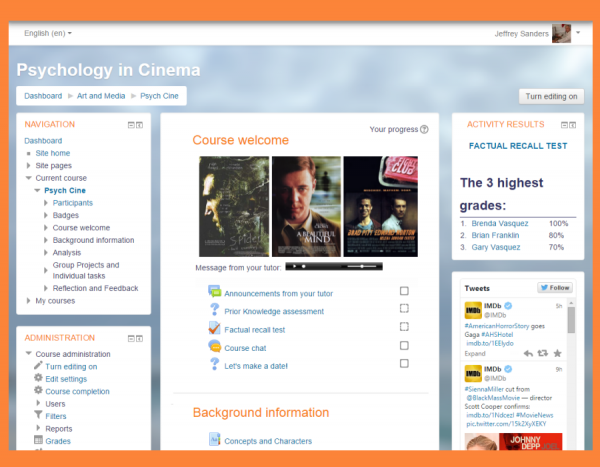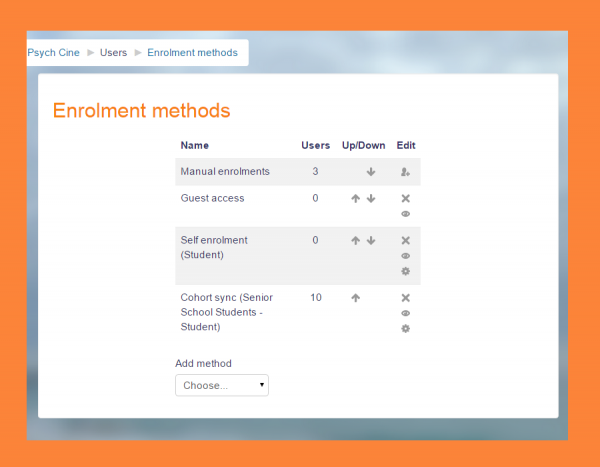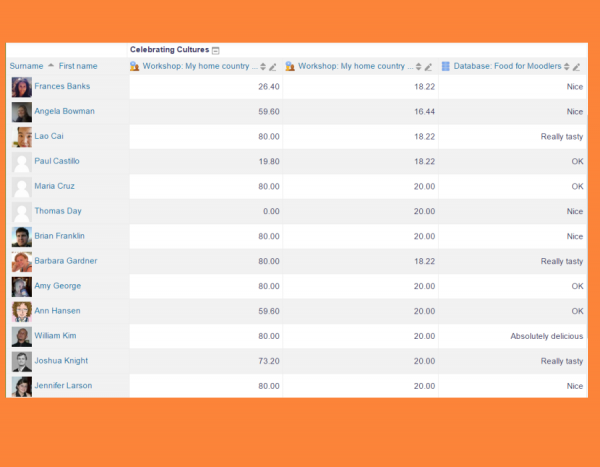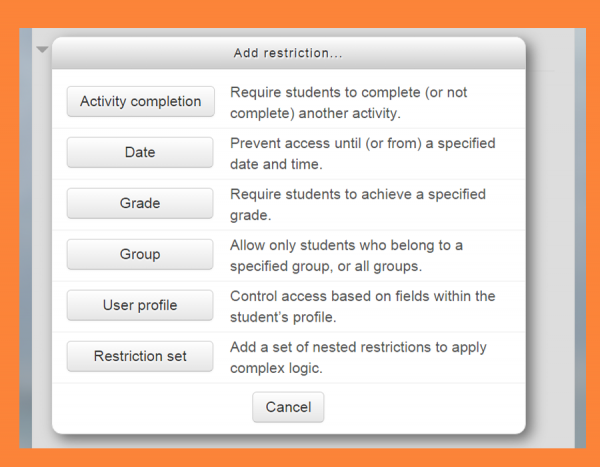Teacher quick guide
In Moodle, a teacher has responsibility for the materials in their own course. They often also manage enrolments and are able to change the layout of the course page. This quick start guide introduces Moodle's features to those with the Teacher role.
Course set up
A course is a space on a Moodle site where teachers can add learning materials for their students. A teacher may have more than one course and a course may include more than one teacher and more than one group of learners. See the screencast What is a course? or if your course looks different, watch this alternative screencast.
By default a regular teacher can't add a new course. See Adding a new course for information on how courses may be created.
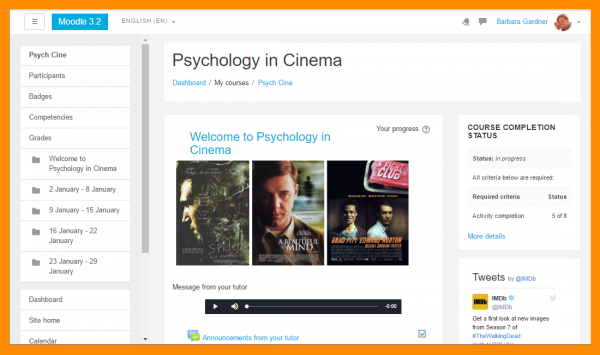
A course can display its materials in a number of ways or 'formats', for example in weekly sections or named topic sections. You can show all the sections at once or just reveal one at a time. See Course settings for more information, or watch the screencast How to lay out a course. If your course looks different, watch this alternative screencast.
Course sections may be renamed by turning on the editing and clicking the configuration icon underneath the section name. Sections may also be moved by drag and drop and sections added or removed by clicking the + or - underneath the bottom section. See Course homepage for more information.
You can also add elements, known as 'blocks', to the right, left or both sides of your central learning area, depending on your theme. For more information see Blocks. Remember that blocks will not display in the Moodle Mobile app so, think carefully about which blocks you really need.
Course enrolment
Before a learner can access your course, they must first be authenticated on the site and that is the responsibility of the site administrator.
There are several enrolment methods available to a teacher, what is available, again, depends on the site administrator. The admin might enrol students into course automatically, or the teacher might be able to let students enrol themselves. Depending on the theme used, this can be done either by clicking the gear menu in the nav drawer link Participants or by clicking Enrolled users from the Users link in the Course administration block. This is the Manual enrolment method. Other options can be seen in the Enrolment methods link and include Self enrolment and Guest access.
An enrolment key may be set if Self enrolment is enabled so that only students with the key can enter. The screencast Enrolling learners gives more information on course enrolment. If your course looks different, watch this earlier screencast on Enrolling learners .
Grading
Every course has its own Gradebook which can record scores from assignments , quizzes , peer assessment workshops, 'branching' lessons, SCORM activities and LTI learning resources.
Other activities such as forums, databases and glossaries can have ratings enabled which will also then be reflected in the gradebook.
Grade items can be manually created from Course administration > Grades > Set up > Categories and items and it is also possible to import and export grades.
Tracking progress
If completion tracking has been enabled for the site and in Course administration > Edit settings, you can then set completion conditions in activity settings. A checkbox will appear next to the activity and a student may either be allowed to tick it manually, or a tick will display once criteria for that particular activity have been met. This feature can be combined with Course completion so that when certain activities have been completed and/or grades obtained, the course itself is marked complete.
Badges can also be issued, manually or based on completion criteria to act as a motivator and record of course progress.
Restricting access
A course can be set to display everything to everyone all the time, or it can be very restrictive, displaying certain items at certain times, to certain groups or based on performance in previous tasks.
Course items and sections may be manually hidden using the 'hide' icon when the editing is turned on. If Restrict access has been enabled by the administrator then a Restrict access section will display in each course activity and resource, allowing you to choose how and when this item will be revealed, and whether to hide it completely or show it greyed out with the conditions for access.
See also
- Moodle - Tool Guide for Teachers by Joyce Seitzinger and adapted by Gavin Henrick
